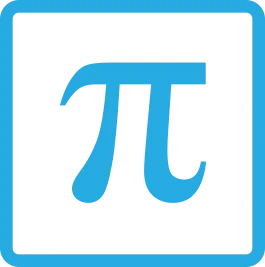Some things in mathematics are simple not negotiable. These are foundational skills on which the whole of the maths superstructure is built. But the good news is, that these skills are actually few in number and there are many and varied ways to learn them so you are free to choose the one/s that suits you (and your child) the best.
In my tutoring practice, I see many children who have struggled with maths from around year 4 or 5. I often don’t see them until they are starting high school and by then they usually have a fairly low level of confidence when it comes to maths. The tragic thing about this is that the child’s suffering could easily have been avoided.
In nine cases out of ten, the root cause of the problem is sketchy knowledge of the addition and multiplication tables. Now, I stand as a living testament that it is possible to get through and pass third year university level maths with a few holes in your addition tables (don’t tell anyone but… I only filled those gaps when I started teaching!) However, the same cannot be said of the times tables. It is a simple fact that without nearly instant recall of your times tables, most mathematics topics that are introduced in year 6 and beyond may as well be Greek.
In Milestone Maths, drills are an important part of every single lesson from Student Book B2 onwards. In most cases, these written drills are one of the quickest and most painless ways of learning the all important skills and tables. Some of the drills in Milestone Maths practice the basic facts in the context of more complex problems (for example, the addition and subtraction tables are practiced by adding multi-digit numbers). This is to provide variety but, more importantly, to help your child apply the knowledge in slightly different domains. The many and varied word problems and puzzles throughout the body of the lessons also serve the same purpose.
But my kid refuses to do the drills….
Not a problem! There are many and varied ways that you can achieve the same end:
- If it’s the writing that your child objects to, turn the drill into an oral exercise. It should go even faster and be over and done with much sooner.
- Stop and consider: are these facts too hard for my child? Maybe they didn’t truly master the previous set of drills before the book moved on. It is impossible to make one series of drills that fits every single child so this can happen. If your child is finding the drills in the book they are working on hard but the lessons easy, you can simply give them drills from a lower level and leave the current ones for later. The core skills drill books (coming soon) are ideal for this purpose.
- Some children starting on level C may not be quite mature enough to handle the longer drills that appear in this level. In this case, it is simply a matter of ruling a line halfway down the page and allowing your child to stop when they reach the line. It would be ideal to do the other half of the drill as an oral drill some time later in the day. You should slowly move the line down the page as your child builds speed, stamina and patience.
- Use flashcards instead. The Milestone Maths Number Bond Flashcards are ideal for this purpose.
- Play games! We will slowly populate this blog with a plethora of games designed to teach basic number skills, so check back often. In the meantime, try Addition Four in a Row which you can also easily adapt to be “Multiplication Four in a Row.” You can also do an internet search for more games.
What’s your favourite way to practice number facts?

